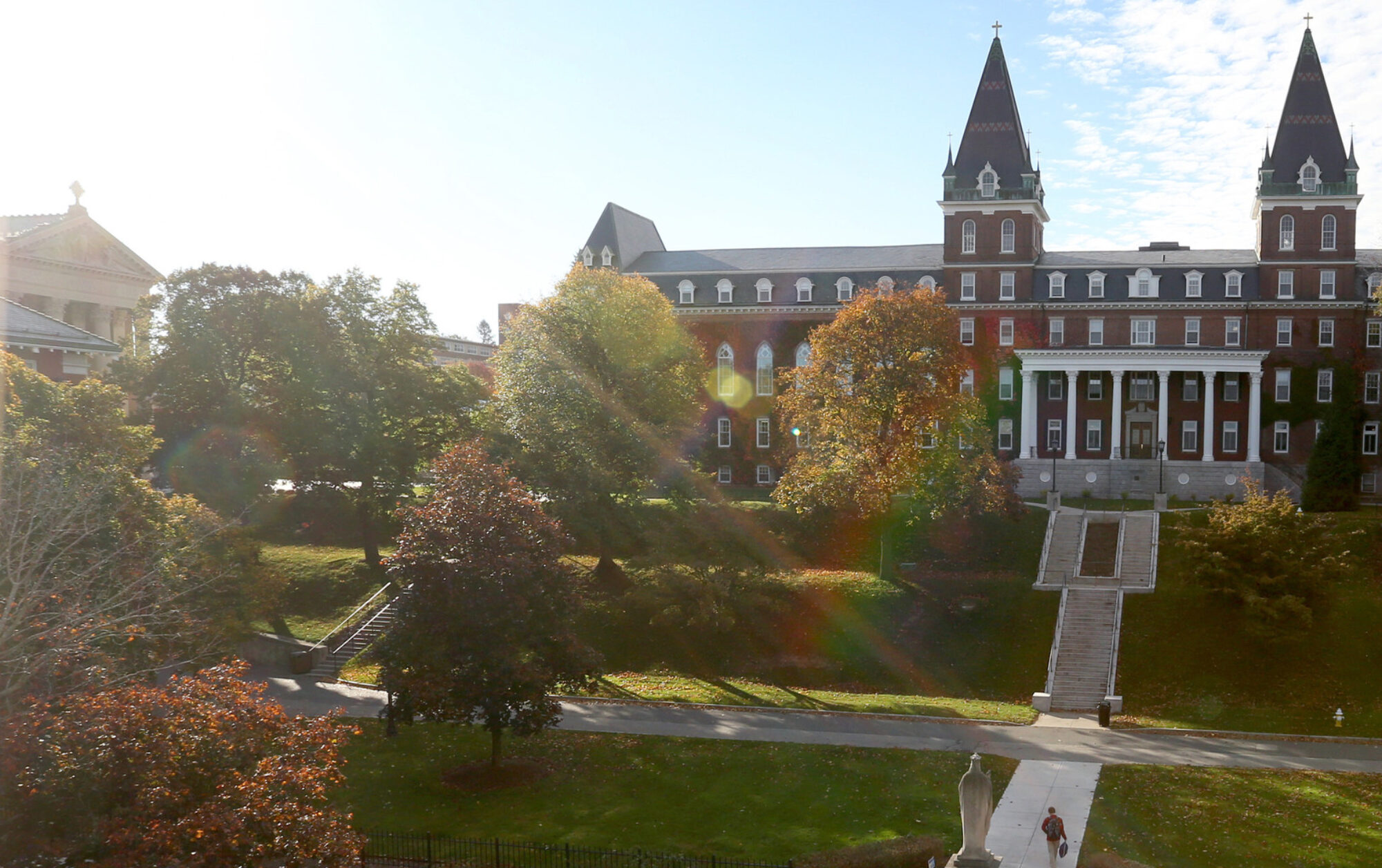Coming from a Jesuit high school in Houston, Texas, I came to Holy Cross thinking I knew where to look for the Ignatian spirituality and close community I’d loved back home. I was excited to hang out in Campion House and enjoy the warm cookies baked daily for students on campus. I’d go to Mass on Sunday nights and I’d sign up for the first year retreats everyone was talking about. These were all great ideas, but I was missing the core of what Jesuit spiritual identity is: being with others and living in community.
For starters, I didn’t even know where to begin looking. Literally, the first time I walked up to the Chaplain’s house, I couldn’t find the entrance. It’s on the side of the hill, past the cemetery, up from Loyola. The door IS the one that’s right past the steps in on the side of the house. But, I, in my confident, assured way, knew that couldn’t possibly be the door to a student space. That looked too much like a home.
It took 3 weeks of me passing by and waiting to see someone else go in the door, before I allowed myself to follow them.
I like to think of this experience as a metaphor for my entire spiritual journey in college. I came in thinking God would be in this one place, and when I couldn’t find him there, I didn’t know where to look. The problem wasn’t that the Jesuit identity or community was missing, but that I couldn’t see it, even when it was right in front of me.
Holy Cross’ Jesuit identity extends far beyond the pews in St. Joseph’s chapel. One of the greatest examples of this came in my first semester at Holy Cross, when I participated in a solidarity rally in Worcester, the night the city was deciding how to move forward on legislation declaring Worcester would not be a sanctuary city for migrants. I and hundreds of other protestors, including multiple buses full of Holy Cross students, stood outside of City Hall, chanting, “Immigrants are welcome here!” over and over again. When I turned around, I recognized a familiar face, Fr. Boroughs, the president of our school wearing a thick down puffer coat. He wasn’t there as a political or religious leader, he was there as a person whose voice was equal to all of ours, in solidarity with the community.
To me, this is the example I would like to recognize and live by. Knowing that his voice as a community member who listened first and spoke when called to do so, Fr. Boroughs exemplified the power of humility and solidarity. Jesuit identity means being drawn into the community, not just as a leader but sometimes as a voice among the crowd. The greatest lesson I learned at Holy Cross was not just how to lead, but to listen, and to use my voice where it can do the most good. I am proud to be a woman for and with others.
Throughout my four years at Holy Cross, my faith has grown in ways I never expected: through the contemplative and reflective questions asked in each of my classes, to the conversations I had with new friends in Kimball, to my days spent studying abroad in Italy and Perú, to the care each and every professor had for me in their classes. And now as I look back on my time at Holy Cross, I can only hope to use what I have learned not only in Loyola Chapel and in my classes, but also that day in front of city hall, to go forth and set the world on fire.
Johanna Mackin ’20
Johanna Mackin is a senior Political Science major with a self-designed Migration Studies minor and a Latin American, Latinx, and Caribbean Studies concentration. She is from Houston, Texas and spent junior year abroad in Italy and Peru. On campus, she is involved in the Office of Admission as a greeter, overnight host, and a retreat leader.

